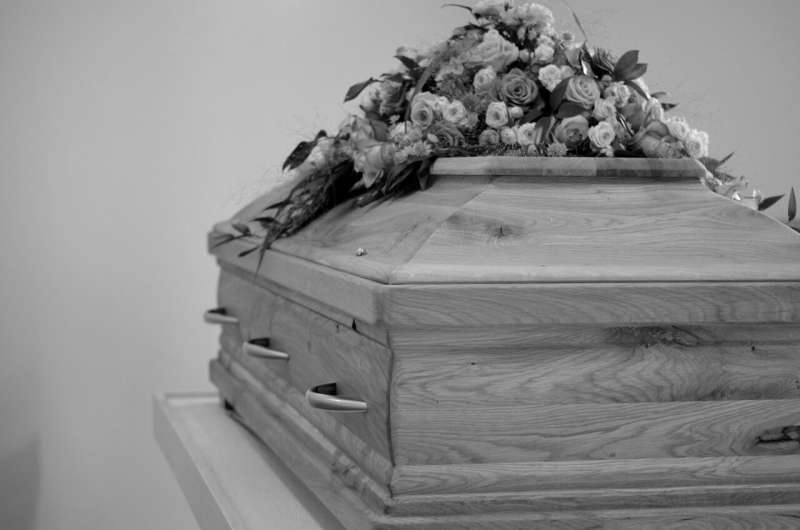November 21, 2023 report
This article has been reviewed according to Science X's editorial process and policies. Editors have highlighted the following attributes while ensuring the content's credibility:
fact-checked
peer-reviewed publication
trusted source
proofread
Grief questionnaire results suggest Irish wakes may help reduce feelings of loss more than UK funerals

A team of psychologists and social scientists from Maynooth University, in Ireland, Ulster University, in Northern Ireland and Napier University, in Scotland, has found via questionnaire that traditional Irish wakes may help people deal better with the death of a loved one than somber funerals such as those conducted in the U.K.
In their study, reported in Journal of Traumatic Stress, the group conducted two bereavement studies using online questionnaires, one in the United Kingdom, the other the Republic of Ireland.
Prior research has suggested that people can experience what psychologists call prolonged grief disorder (PGD) when someone close to them dies. PGD occurs when a person experiences more than normal levels of difficulty accepting that a loved one has died and tends to mourn for longer periods—it also often leads to some degree of interference with returning to a normal life.
For this new study, the research team tested two types of bereavement approaches to see which offers more help in healing after the death of a loved one. They compared Irish wakes, which typically go on for several days, involve an open casket, are informal, open to the public, and encourage singing, offering anecdotes and drinking alcohol—to traditional funerals in the U.K. Such funerals, they note, are typically closed coffin, formal, private, last just an hour or so, and have hymns, readings and a eulogy. To compare the two, the research team attempted to compare rates of PGD in Ireland versus the U.K.
The comparisons were made by sending out questionnaires in the form of emails, text messages, and in-app notifications to people in both areas and then analyzing those that were returned—they received 1,012 from U.K. respondents and 1,011 from people in Ireland.
By converting answers to a likelihood of respondents having suffered from PGD, the researchers found PGD rates of 10.9% for people in Ireland and 15% for people in the U.K.
The researchers suggest the open casket aspect of the wake likely brings home the finality of death, making it easier for people to accept that a loved one is truly gone. They also note that the sense of community surrounding wakes may also help people truly accept the death of their loved one as they see others mourning for them, as well.
More information: Philip Hyland et al, The International Grief Questionnaire (IGQ): A new measure of ICD‐11 prolonged grief disorder, Journal of Traumatic Stress (2023). DOI: 10.1002/jts.22986
Journal information: Journal of Traumatic Stress
© 2023 Science X Network




















